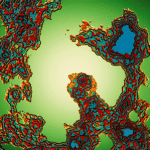Cannabinoids have been proposed for numerous neurodegenerative disorders. As a matter of fact, scientists employed by the US government filed a patent in 2001 for Cannabinoids as antioxidants and neuroprotectants, citing their potential for treating Alzheimer’s disease among others.
Researchers at the Salk Institute for Biological Studies recently examined isolate cannabinoids and their combination in a preclinical assay of neuroprotection. They checked 11 cannabinoids’ effects on 5 measures of cellular stress that are relevant to Alzheimer’s. Many cannabinoids (CBDV, CBG, Δ8-THC, etc) prevented oxidant-induced cell death. The acid cannabinoids did not show much promise in these models — CBGA was actually cytotoxic at large concentrations, and CBDA and THCA were generally less effective at preventing cellular stress (than their neutral counterparts, CBD and THC). On average, Δ8-THC, Δ9-THC, CBD, CBC, and CBN were potent and effective neuroprotectants in nearly every test. Combining THC with CBN had a synergistic neuroprotective effect. The combination of THC and CBD was additive, but not synergistic.
Read study: Efficacy of Cannabinoids in a Pre-Clinical Drug-Screening Platform for Alzheimer’s Disease
Adrian Devitt-Lee is a research scientist and longtime Project CBD contributor. © Copyright, Project CBD. May not be reprinted without permission.







